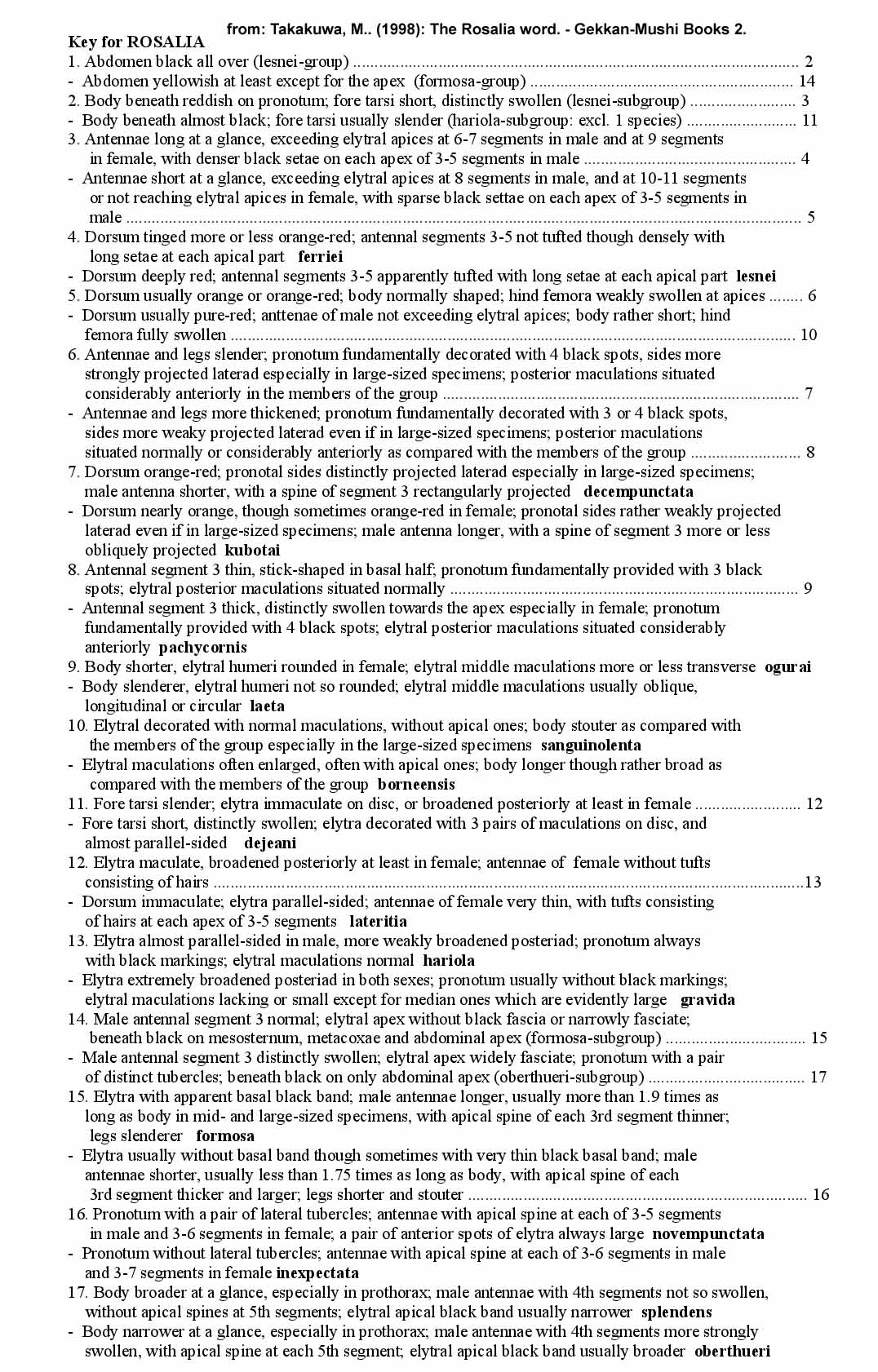| Author |
 Topic Topic  |
|
|
Sergi
Member Rosenbergia
   
Spain
1748 Posts |
 Posted - 26/01/2015 : 16:29:30 Posted - 26/01/2015 : 16:29:30



|

73.5 KB
From Vietnam, Ha Giang.
Size: 27 mm |
Edited by - Xavier on 26/01/2015 17:13:46 |
|
|
Xavier
Scientific Collaborator
    
France
12328 Posts |
 Posted - 26/01/2015 : 17:12:48 Posted - 26/01/2015 : 17:12:48



|
| Teeth of antennomera seem the same than here , so I would say Rosalia (Eurybatus) pachycornis Takakuwa & Karube, 1997 . Spots on elytra are very variable. |
Edited by - Xavier on 26/01/2015 17:14:18 |
 |
|
|
bbigmojo
Member Nathrius
Russia
1 Posts |
 Posted - 29/11/2020 : 16:18:09 Posted - 29/11/2020 : 16:18:09



|
Hello to all!
Is there anyone who has the paper by Takakuwa & Karube, 1997? |
All the best, Mikhail |
 |
|
|
lucanusdybodybo
Member Nathrius
Republic of Korea
2 Posts |
 Posted - 13/01/2021 : 19:24:34 Posted - 13/01/2021 : 19:24:34



|
| Not an expert, but I also agree on pachycornis. |
Edited by - lucanusdybodybo on 13/01/2021 20:04:32 |
 |
|
|
Francesco
Forum Admin
    
Luxembourg
9499 Posts |
 Posted - 30/03/2021 : 20:29:51 Posted - 30/03/2021 : 20:29:51




|
In my opinion, this might be E. decempunctatus..
In E. pachycornis (male), the antennae are longer than body with 1-2.5 antennomeres, while in E. decempunctatus (male), they are longer with 3 antennomeres, in small males as well.
Body and legs of E. decempunctatus are more elongated.
Tomorrow, I post both species together in order to appreciate the difference.
|
 |
|
|
Xaurus
Member Rosenbergia
   
Germany
1957 Posts |
 Posted - 31/03/2021 : 11:22:18 Posted - 31/03/2021 : 11:22:18



|
a longer time ago M. Takakuwa sent me the translated key from his book "The Rosalia world", maybe useful for id.

431.08 KB |
 |
|
|
Francesco
Forum Admin
    
Luxembourg
9499 Posts |
 Posted - 04/04/2021 : 18:11:11 Posted - 04/04/2021 : 18:11:11




|
Thank you Andre.
Pierre provided a French translation here, but the points 7-9 are unclear without confronting material.
I have open a new topic here. |
 |
|
| |
 Topic Topic  |
|


